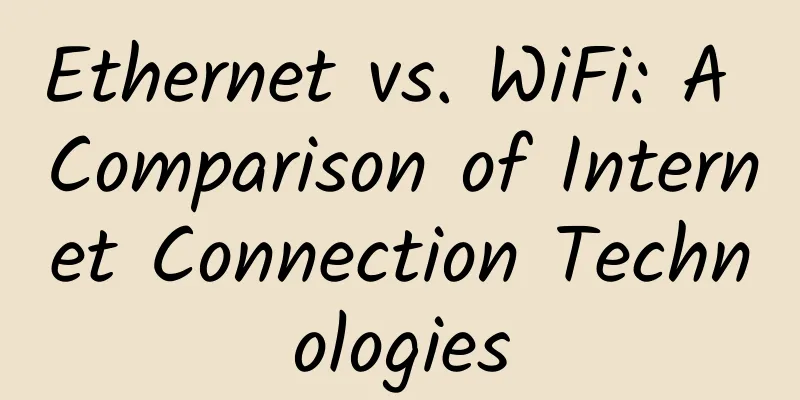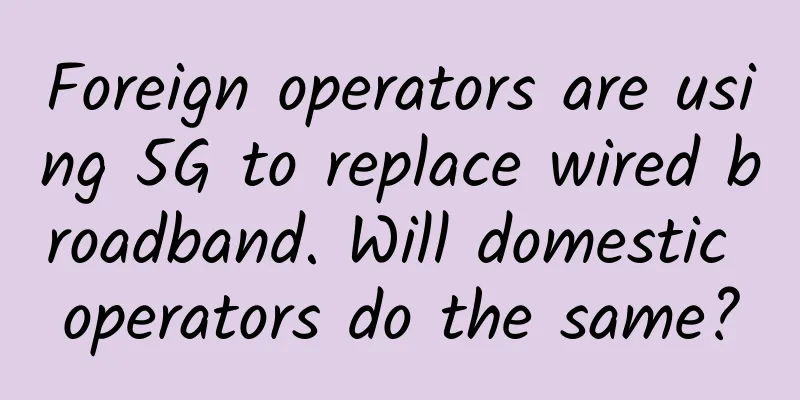Ethernet vs. WiFi: A Comparison of Internet Connection Technologies

|
The world is generally moving from wired to wireless technology due to convenience and many other advantages. Thanks to the Internet of Things (IoT), there are more and more smart devices around us. Now, does the development and advancement of IoT and wireless technology make wired Ethernet completely redundant? In this article, we will compare Ethernet LAN and Wi-Fi connections while exploring their main differences. This way, you can choose the best internet connection for your use case. Obviously, no one connects their smartphone or tablet with an Ethernet cable. Therefore, for portable devices, Wi-Fi is a clear winner. Therefore, the focus here is on PCs. 1. SpeedThe original Wi-Fi 802.11g standard had a theoretical maximum speed of 54Mbps. A wired Ethernet connection can easily provide speeds of 100Mbps to 1000Mbps or even higher. However, the much updated and developed 802.11ac Wi-Fi standard can sustain speeds of up to 3200Mbps. The latest Wi-Fi standards make Wi-Fi speeds much better than Ethernet. Keep in mind that your connection speed will most likely be the bottleneck for everything you do online. For example, if you want to download content, stream media, or even play online games, the quality of your experience will depend primarily on your internet connection speed. If you plan to share files within your local network, Ethernet is the faster, smoother way to go. 2. ReliabilityThe connection speeds we mentioned above are purely theoretical. Real-world applications will vary greatly. You may experience fast and consistent speeds when continuously downloading large files over Ethernet. Wi-Fi connections are susceptible to various environmental factors, which can cause signal interference and signal degradation. You'll also notice that you have sporadic Wi-Fi signals from room to room in your home. You can certainly try to mitigate this by optimizing your router placement. But you won't be able to achieve a connection as stable as you would with an Ethernet connection. This is one of the main reasons serious online gamers choose Ethernet over WiFi - reliability. 3. SecuritySecurity is an important factor in applications where the data stored in network devices is highly confidential, such as within military organizations. Note that whenever confidential data is sent over an Ethernet connection, it can only be accessed by devices physically connected to the network. This minimizes the possibility of external hacking attacks. On the other hand, it is not advisable to use Wi-Fi when sharing confidential or sensitive data. If it is really necessary, make sure the data is encrypted. Open public Wi-Fi is the least secure. 4. DelayThe quality of your internet connection is more than just raw bandwidth speed. Latency (or Ping) is the time it takes for a signal to get from your device to its destination. For online gaming, latency is crucial because it can mean the difference between victory or humiliation. Therefore, if you must avoid annoying lags, Ethernet is your Internet connection of choice. Wi-Fi generally has higher latencies than Ethernet. 5. InterferenceAs mentioned before, there are many sources of Wi-Fi interference. Wi-Fi interference in homes and offices can be caused by various devices such as microwave ovens. The resulting problems include increased latency, reduced speeds, and even signal loss. Therefore, Ethernet is more reliable in terms of stability/reduced interference. Ethernet LAN vs. WiFi: Which is Best for You?If you are an average user looking for a connection that is suitable for everyday use, you will most likely find that a high-quality Wi-Fi connection is sufficient. For heavy Internet users (such as competitive gamers) who will not risk an unstable connection, Ethernet is the appropriate choice. Likewise, in applications and use cases that require a high level of security, an Ethernet connection is the most appropriate. Keep in mind that most wireless routers have Ethernet ports that can be used for wired connections with compatible devices. Even though wireless connections are becoming more popular, Ethernet still has the significant advantages it offers. But they both have their own pros and cons, depending on the factors we discussed above. |
<<: Exploring cross-industry collaboration between 5G and edge computing
>>: Five-minute technical talk | HTTP evolution history
Recommend
RackNerd New Year promotion, 5-room KVM VPS annual payment starts from $14.38, supports Alipay/PayPal
RackNerd has launched its 2021 New Year promotion...
Choosing the right communication mode for your IoT project
Before you embark on a new IoT project, you shoul...
Nokia wins 5G network contracts in three European countries
On August 25, Finnish telecommunications equipmen...
At the Huawei Maimang 8 launch event, He Gang of Huawei said that the greater the challenge, the greater the achievement
At the launch of Huawei Maimang 8 mobile phone, t...
What is 6G and when will it be launched?
Is this what comes after 5G? Since 5G networks ar...
From the industry, to the industry | Huawei's China Government Business "knowledgeable" image is officially released
On June 22, Huawei China Government Business offi...
The Ministry of Industry and Information Technology responded to the withdrawal of 2G/3G networks: an inevitable choice for upgrading
Recently, the Ministry of Industry and Informatio...
What is a DDOS attack?
introduce DDoS is the abbreviation of Distributed...
8 Software-Based Network Trends for 2019
As networks become increasingly software-based, l...
IT presents a new normal in the post-epidemic era. 7 "prescriptions" can help you cure the "sequelae"
In early 2020, the coronavirus pandemic hit IT li...
Kubesphere deploys Kubernetes using external IP
Our company has always had the need to connect al...
Netty - Sticky Packets and Half Packets (Part 2)
Continue from the previous article "Introduc...
HostKvm 10th Anniversary Recharge $50 Get $10, 20% off all items, Hong Kong VPS/Singapore VPS/Japan VPS monthly payment starts from $5.6
Time flies, HostKvm has been established for 10 y...
BuyVM Las Vegas all packages restocked from $2/month, 1Gbps unlimited traffic, small amount restocked in Luxembourg/New York/Miami, etc.
All packages in BuyVM's Las Vegas data center...
Is 5G really useful? Please give technology some time
[[393766]] What is 5G network? "5G" act...









